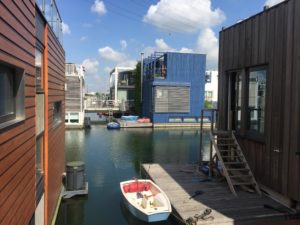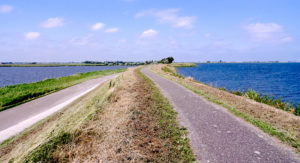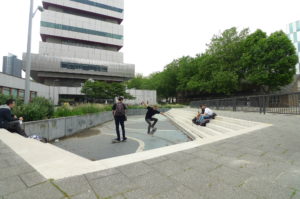Water Management
In a country which lies largely below sea level, water management is a crucial aspect of life. The Dutch have been experts at keeping their feet dry ever since they settled in the marshy lands surrounding the Rhine delta.
To protect against flooding, the Netherlands have developed an advanced system of dikes, dams, and floodgates. Today, the country is at the forefront of modern and contemporary water management practices, which are essential to protect against the growing threat of climate change and sea level rise. The last major natural disaster was the North Sea flood of 1953, which killed over 1,800 people and caused widespread damage. Afterwards the Delta Works were built: a system of dikes and dams that protects the delta of the river Rhine. Today, a bigger challenge than horizontal water is vertical water: salty groundwater pushing through the polders, but mainly the increase in precipitation due to the climate change. Therefore an important aspect of Dutch water management are nature-based solutions. These are sustainable and cost-effective measures that harness the power of nature to mitigate the effects of climate change and protect against flooding. The Dutch approach the water-related challenges in an equally innovative and pragmatic manner, with projects including restoration of wetlands, the creation of green roofs and walls, water retention squares, underground rainwater storage and floating neighbourhoods. The mitigation measures also include the use of green infrastructure, such as natural floodplains and wetlands, which can absorb excess water and reduce the impact of flooding. Find out more during one of our tours on water management!
Water Management Tours
Not what you’re looking for? Contact us for a customized tour proposal!




